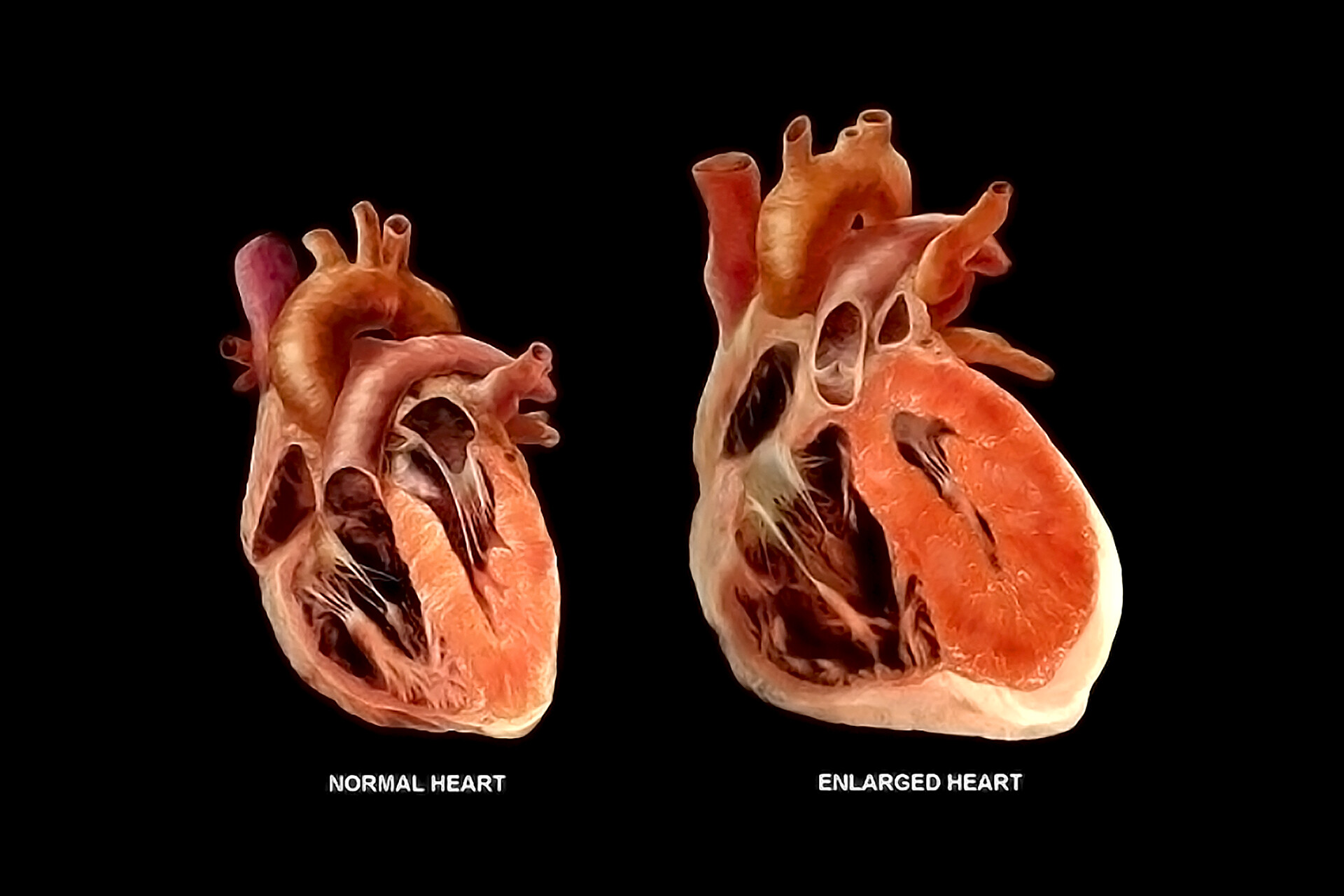
![]()
An enlarged heart, also known as cardiomegaly, is a condition where your heart muscles bulge out more than they’re supposed to. This could interfere with your heart’s beating and pumping ability. While this is a treatable condition, it could be serious, so visit your doctor right away if you experience shortness of breath, heart fluttering or palpitations, and swelling throughout your body.[1] Your doctor will probably prescribe medications like ACE inhibitors or beta blockers to lower your blood pressure and restore your heart to its normal pumping ability. They will also give you some dietary and lifestyle instructions to follow. We’ve gone ahead and put together some of these health and lifestyle tips together to both help your heart heal and prevent it from enlarging again.

A generally healthy diet is best for your cardiovascular health and could treat an enlarged heart. Include plenty of fresh fruits, vegetables, whole grains, and lean protein in your diet each day to give your heart the nutrition it needs. These foods are also low in saturated fats, which can make an enlarged heart worse.[2]
- In general, include at least 5 servings of fruits and vegetables in your diet each day. Plant-based diets are ideal for your heart health.[3]
- Lean protein sources like poultry, fish, nuts, or beans are low in saturated fat and chemicals.
- Try to switch from white or enriched products to whole-wheat ones instead. These products have a lower glycemic index and won’t raise your blood sugar or pressure. Whole-wheat products also have more fiber, which is good for your cardiovascular health.

These fats can clog your arteries and put you at a higher risk for heart disease. A low-fat diet is much healthier, especially if you have an enlarged heart.[4] Get no more than 6% of your daily calories from saturated fat, or 120 calories if you eat 2,000 calories per day. Eliminate trans fats entirely.[5]
- Fried and processed foods are all high in saturated and trans fats. Avoid these items as much as possible.
- Try to reduce the fat in your diet by trimming excess fats off meat before you cook it.
- If you cook at home, use methods like baking, roasting, or boiling so you don’t have to add more oil or fat.
A high-salt diet constricts your arteries and could make an enlarged heart worse. Unfortunately, your salt intake can add up, even if you don’t realize it. Do your best to avoid salty foods, and don’t add more salt to your cooking or meals.[6]
- The American Heart Association recommends consuming no more than 1,500 mg of salt each day for ideal heart health.[7]
- Get into the habit of looking at nutrition labels to check the salt content of the food you’re eating. You might be surprised at how much salt some items contain.
Limit your alcohol and caffeine intake

Both alcohol and caffeine could interrupt your heart rhythm. This is very dangerous if you have an enlarged heart. Keep your consumption below the recommended levels to avoid any problems. If you notice any heart fluttering or palpitations after you drink either, then you should cut it out of your diet entirely.[8]
- The recommended caffeine limit is 400 mg per day, which is equal to 3-4 cups of coffee.[9]
- Recommended alcohol intake is 1-2 drinks per day.[10]
Add turmeric to your diet to prevent inflammation.

Turmeric contains curcumin, a natural anti-inflammatory. There’s evidence that curcumin can reduce inflammation in your cardiovascular system and prevent heart problems. Including an enlarged heart. Try adding some turmeric to your diet to see if this improves your condition.[11]
- Turmeric is safe in high levels, even up to 5,000 mg per day. However, high levels could cause diarrhea or stomach pains.[12]
- You can also take curcumin supplements for a higher dose, but always ask your doctor before taking dietary supplements to make sure they’re right for you.
Maintain a healthy bodyweight.
Being overweight puts more stress on your heart. If you’re overweight, talk to your doctor to determine the right weight for you. Then design a healthy exercise and diet regimen to reach and maintain that weight.[13]
- Following a heart-healthy diet will also help you lose weight, so you can tackle both problems at once.
Ask your doctor what the right amount of exercise is.

You have to exercise carefully when you have an enlarged heart. Too much stress could cause problems, and might even put you at risk for a heart attack. Always ask your doctor about the right amount of exercise, and which types are best. Stick with these recommendations for a safe exercise regimen.[14]
- Light aerobic exercises like walking or slow jogging show some success in improving an enlarged heart. However, always follow your doctor’s guidance for the best workout regimen.[15]
- Be very careful when you’re exercising with a heart condition. If at any point during your workout you feel lightheaded, dizzy, or short of breath, or if your heart is pounding too hard, stop exercising right away and rest. If you don’t feel any better, call your doctor right away.[16]
Stop exercising if you have an athletic-induced enlarged heart.
Sometimes athletes’ hearts bulge because of the stress from extreme exercise. This condition is called athletic hypertrophy. If you have this condition, your doctor will probably tell you to stop exercising for 3-6 months. Without the stress from exercise, your heart should shrink back to normal.[17]
- You can ask your doctor for tips you can use to stay in shape while you can’t exercise.
- If your doctor isn’t sure whether you have an enlarged heart from heart disease or hypertrophy, then they may tell you to stop exercising to see if your heart shrinks. If it does, then this confirms that it was hypertrophy.
Try to sleep for 7-8 hours each night

Regular sleep is good for your cardiovascular health and might improve your enlarged heart. Do your best to get a full night’s sleep of 7-8 hours every night.[18]
- If you have trouble falling asleep, try doing relaxing activities before bed like reading, stretching, taking a bath, or listening to soft music.
- Don’t have any caffeine 3-6 hours before bed so you can fall asleep easier.[19]
Reduce stress to lower your blood pressure.
High stress raises your blood pressure and is harmful to your cardiovascular health. If you’re often stressed, then take some steps to manage it productively. This can lower your blood pressure and improve your heart health.[20]
- Relaxation exercises like meditation or deep breathing can be great stress-reducers. Try to spend 15-20 minutes each day doing one or both of these activities.
- You should also make some time for your hobbies and other activities you enjoy. This is another great way to cut down on your stress.
Quit smoking or don’t start at all.

Smoking is harmful to your overall health, but especially for your heart. If you smoke, then this could make your enlarged heart worse. It’s best to quit as soon as possible, or don’t start in the first place.[21]
- Secondhand smoke can also cause health problems, so don’t let anyone smoke inside your home either.
Manage any underlying medical conditions you have.
In some cases, underlying health conditions can cause an enlarged heart. Diabetes, especially, might trigger the condition. If you have any underlying health issues, then follow all of your doctor’s instructions and take any necessary medication to control those issues. This could prevent an enlarged heart from returning.[22]
Source: wikihow.com




